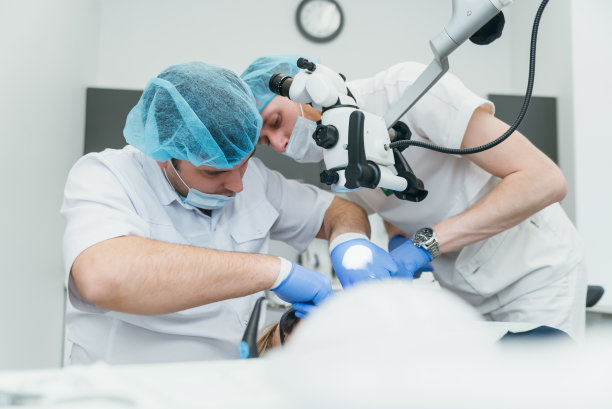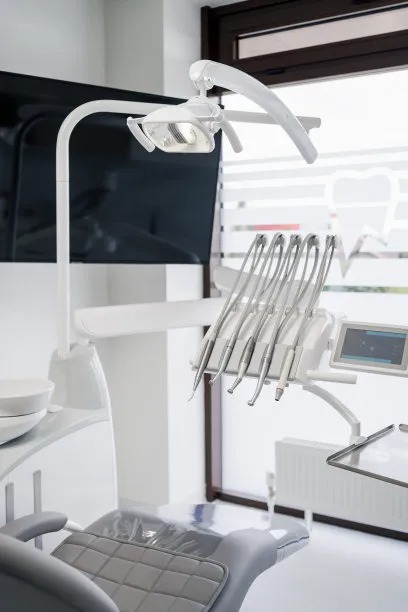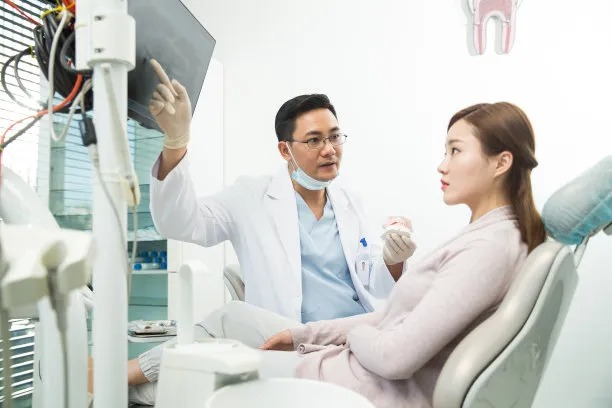Summary: Pioneering Innovations in Advanced Dental Implant Technology have revolutionized the field of dentistry, offering patients more effective and long-lasting solutions for missing teeth. This article explores four key aspects of these innovative technologies, highlighting their benefits and impact on the dental industry.
1. Enhanced Biocompatibility

Advanced dental implant technology has significantly improved the biocompatibility of implants, reducing the risk of rejection and improving overall success rates. The use of innovative materials such as titanium alloys and zirconia has enhanced the integration of implants with natural bone, ensuring long-term stability and functionality.
Furthermore, surface modifications and coatings applied to implants have further optimized the healing process and accelerated osseointegration. These enhancements result in reduced recovery times for patients and improved treatment outcomes.
In addition, biocompatible materials have allowed for the development of minimally invasive procedures, leading to quicker and less invasive implant placements. Patients can now benefit from same-day implant procedures with minimal discomfort and faster recovery times.
2. Digital Planning and Guided Surgery
The introduction of digital technologies in dental implantology has revolutionized treatment planning and surgical procedures. 3D imaging techniques, such as cone beam computed tomography (CBCT), enable precise mapping of the patients oral anatomy, facilitating accurate implant placement.
Computer-aided design and manufacturing (CAD/CAM) technology allow for the creation of custom implant restorations, tailored to the unique specifications of each patient. This level of customization ensures optimal aesthetics and functionality, enhancing patient satisfaction.
Guided surgery software provides real-time feedback to the clinician during implant placement, ensuring precise positioning and alignment. This technology enhances the predictability of treatment outcomes and reduces the margin of error in surgical procedures.
3. Regenerative Techniques and Biomaterials
Recent advancements in regenerative techniques and biomaterials have opened up new possibilities for preserving and restoring natural bone structure in implant patients. Growth factors, such as platelet-rich plasma (PRP) and platelet-rich fibrin (PRF), promote tissue regeneration and accelerate healing following implant placement.
Bone grafting materials, such as synthetic bone substitutes and autologous bone grafts, provide additional support for implant stability in cases of bone deficiencies. These materials stimulate bone growth and enhance the long-term success of dental implants.
Furthermore, the integration of bioactive coatings on implants facilitates enhanced tissue integration and reduces the risk of peri-implantitis, a common inflammatory condition that can compromise implant health. These innovations promote overall implant longevity and patient well-being.
4. Smart Implant Technology and Remote Monitoring
The emergence of smart implant technology has transformed the way dental implants are monitored and managed post-treatment. Sensors embedded within implants can collect data on bite force, temperature, and pressure, providing valuable insights into implant loading and functionality.
Remote monitoring systems enable clinicians to track patients implant health and detect potential issues in real time, allowing for early intervention and proactive treatment. Patients benefit from personalized care plans based on continuous monitoring, enhancing treatment outcomes and long-term success rates.
Smart implant technology also offers convenience for patients, as data can be transmitted wirelessly to their healthcare providers, reducing the need for frequent in-person visits. This technology represents a significant advancement in patient care and implant maintenance.
Summary:
Pioneering Innovations in Advanced Dental Implant Technology have revolutionized the field of dentistry, offering patients superior treatment options and improved outcomes. From enhanced biocompatibility to regenerative techniques and smart implant technology, these innovations have transformed the way dental implants are placed, monitored, and maintained, leading to higher success rates and patient satisfaction. Embrace the future of dental implantology with these cutting-edge technologies.
This article is compiled by Vickong Dental and the content is for reference only.
Vickong Dental
Vickong Dental is a large medical group established in Hong Kong in 2008 by professors from well-known medical universities in Guangdong and Hong Kong, as well as medical doctors from key national '985' universities (including Master's supervisors and senior professors). The chain of branches brings together expert dentists with PhDs and Master's degrees from Hong Kong and Mainland China, committed to providing high-quality dental treatment.
"Vickong Dental Practices the University Motto of 'Healing and Serving Society,' with a Stable Operation for Sixteen Years. It Has Been honored with Hong Kong Enterprise Leaders's Choice,' and is a Global Trusted Implant Center for the Nobel Implant System. Recommended by Hong Kong Metro Broadcast and Guangdong Television, it Serves Customers from Over Thirty Countries and Regions, Gaining the Trust and Favor of Citizens from the Guangdong-Hong Kong-Macau Greater Bay Area and Surrounding Cities.

Thousands of customers' unanimous praise
The most recognized and highly recommended dental service by customers in the Guangdong-Hong Kong-Macau Greater Bay Area
We Ensure You Receive Detailed Care and Attention Here
Hong Kong standards, Shenzhen prices, Your Trusted English-speaking dentists

Vickong Dental Medical-Grade Instrument Disinfection Process
Vickong Dental Medical-Grade Instrument Disinfection Process

Vickong Dental Chain: A Warm and Comfortable Environment for Treatment






Appointment Hours

Q&A
Why choose Vickong Dental?
Vickong Dental practices the university motto 「Medicine to Benefit Society」, with each branch bringing together highly qualified dentists with doctoral and master’s degrees from Hong Kong and the Mainland, and has maintained seventeen years of steady operation。Recipient of 「2024 Hong Kong Enterprise Leaders Brand」, 「2025 Hong Kong Enterprise Leaders Brand」, a Nobel Biocare Global Trusted Implant Center, and a brand recommended by Metro Radio Hong Kong and Guangdong TV。
To date, we have served customers from more than thirty countries and regions,earning exceptionally high word-of-mouth recognition and trusted recommendations from residents across the Guangdong-Hong Kong-Macao Greater Bay Area and surrounding cities
We have eight major branches in Zhuhai、Shenzhen,and a consultation and service assurance center in Hong Kong,so you can book a free consultation at any time for any questions,which is very reassuring.
If I do not accept the quotation after the CT scan, will I be charged??
No! As long as the actual treatment has not started, you will not be charged any fees.
Will there be any additional charges during the treatment process?
No, there won’t be any additional charges. Before treatment begins, we will clearly explain the treatment plan and its corresponding fees. Only after the patient agrees and signs the consent form will we proceed with the dental service.
Can I pay in Hong Kong dollars?
Yes. Vickong Dental accepts payment in Hong Kong dollars. The amount will be converted based on the exchange rate of the day, and the applicable rate will be clearly communicated to you in advance.
Can I reschedule my appointment at any time?
Yes. Please contact us via **WeChat** or **WhatsApp** as early as possible, providing your original appointment time and details, along with your preferred new date and time slot for rescheduling.













